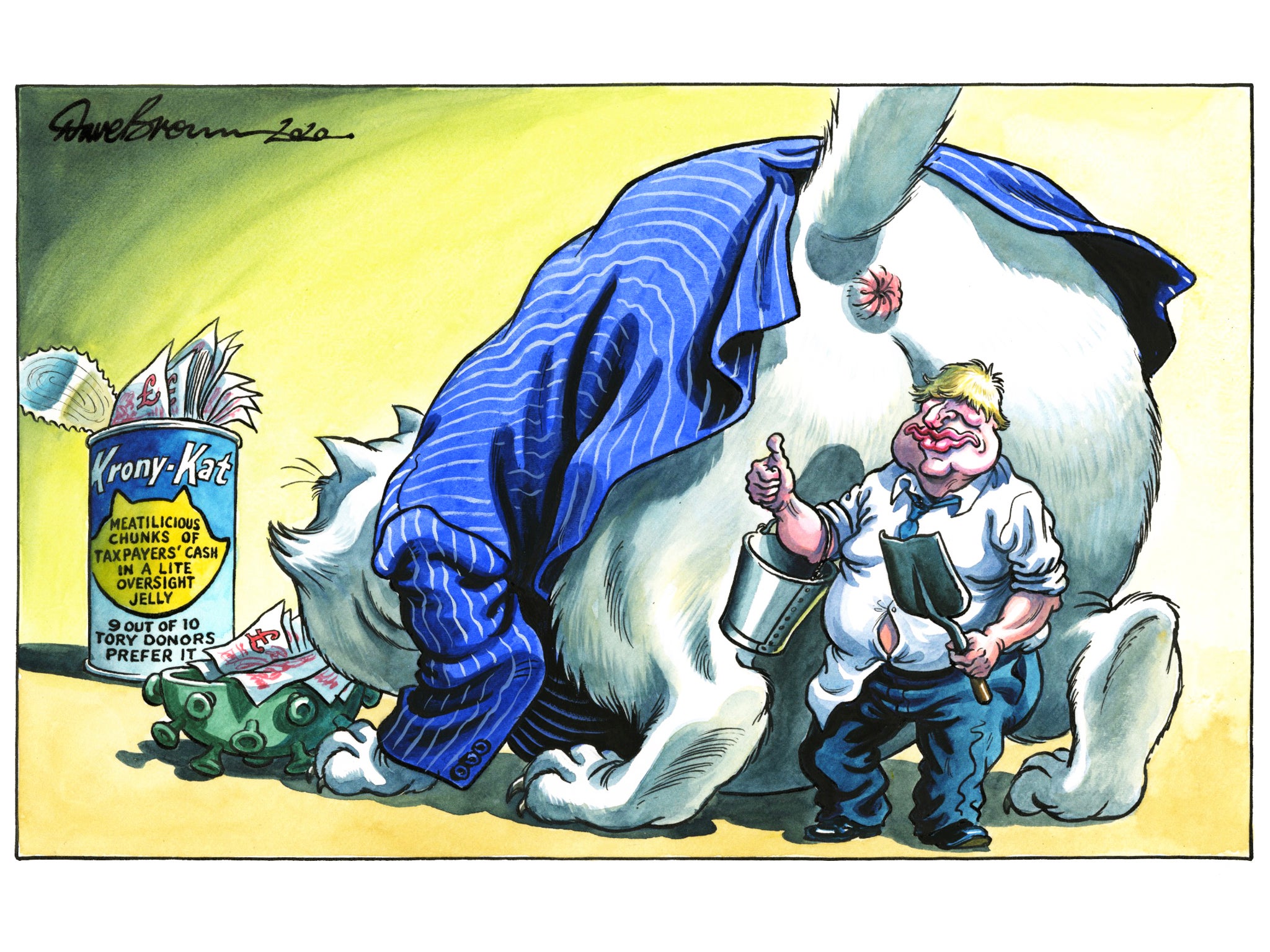As an attempt by the Johnson government to remind the country that it is more than a collection of incomprehensibly inept personalities, there’s a lot to be said about the 10-point plan for a greener future. There will be life after Covid and a country to be rebuilt after Brexit, and the climate emergency hasn’t gone away. So the fact that No 10 has at least given some attention to this transcendent issue is encouraging. Of course, it wouldn’t be a Boris Johnson initiative if it went smoothly, so the prime minister isn’t around for the launch, as he is self-isolating, and the job of selling this major series of announcements fell to Alok Sharma, the business secretary. Though perfectly lucid, Mr Sharma himself, an underwhelming personality, could probably do with a bit of a renewable energy boost himself.
That is the least of the plan’s prospective problems, for there is a substantial gap between its ambitions, such as they are, and the path to their likely implementation. Put at its crudest, there is not enough money being put behind it.
Transforming an economy over a few decades is an expensive business. Only a few years ago, in a slightly more rational era, Theresa May’s chancellor, Philip Hammond, put the cost of achieving a net-zero carbon emission economy by 2050 at £1 trillion. Contrast that with the £4bn in new money that stands behind the 10 pledges. If the infrastructure is to be built, the electric car charging points installed and the mini nuclear power stations plonked on every town, then it will cost more than this government is letting on.
The financial problem is more acute than ever because of the damage that the Covid crisis and Brexit have done to economic growth and will continue to inflict on business investment. The national debt has ballooned, for perfectly good reasons, and traditionally, borrowing to invest is treated more generously by financial markets, but there may still be less headroom for an ambitious green revolution in the decades ahead.
The private sector – business and households – will also need more than exhortation to adopt new and unfamiliar technologies. Phasing out the well-understood gas heating system in homes in favour of electric heat pumps, for example, will undoubtedly run into consumer resistance. Houses with larger gardens are best placed to make the move, but even so, there will be scepticism about the efficacy of the new system. For flat dwellers, installing outdoor pumps also presents special challenges.
Bringing forward the ban on new petrol and diesel cars also presents some awkward questions. Will the car makers have the capacity to produce all these new electric models within a decade, given that the global capacity hardly exists now? How will consumers be persuaded that buying, and running, a battery-powered electric car will be no more expensive than a petrol or diesel equivalent? Lending may help smooth the financial transition, but what if consumers instead turn to petrol or diesel hybrids – and thus CO2 tailpipe emissions will continue? And how aggressive will the authorities be towards drivers who prefer to run their old internal combustion-powered models, mostly with 10 or more useful years ahead of them?
There is also, of course, the argument that the existing plans are not extensive enough anyway, given that much of the technology exists already, but requires collective, government-led action to get things done, as the prime minister might say. Mr Johnson may find that his 10 points are too radical for the voters, but not radical enough to make Britain the green pioneer he dreams about. The green revolution, alas, may be delayed.


Join our commenting forum
Join thought-provoking conversations, follow other Independent readers and see their replies
Comments